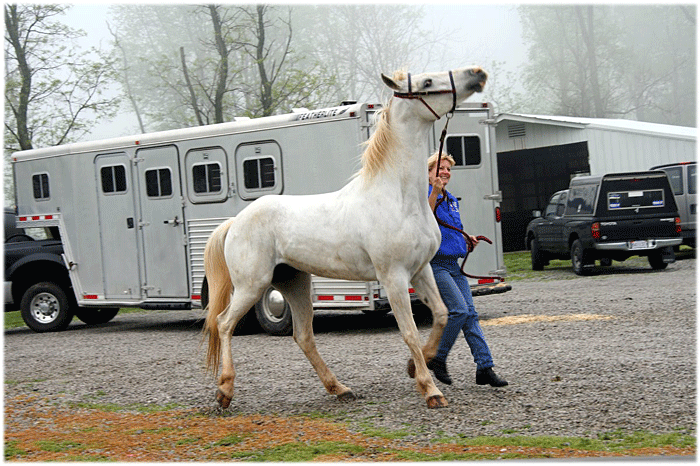Getting ready to move your horse to the new ranch or boarding barn
DESPITE BEING known as great trekkers in the wild, many horses don’t travel all that well. If you are moving your horse to a new ranch or boarding barn, then it’s best to follow the Boy Scout motto and make your preparations well in advance.
Your first consideration — your horse’s health — should be made about a month in advance and might need to include your vet. “A horse doesn’t always necessarily need to be examined by a vet for every transport,” observes Nick Cardin, a research coordinator with the University of Florida’s IFAS Equine Science Center. “If the horse is in good health and up to date on vaccinations and deworming, then the horse is most likely fine to travel.” Yet, Cardin offers one caveat: “If the trip requires crossing state lines, then legally you will need a vet to fill out a health certificate and ensure the horse is current on its EIA (Equine Infectious Anemia, a.k.a. Coggins) test prior to transport. It is not usually required to have a health certificate to travel within state lines, but it can be a good idea to possess one while transporting.” Cardin maintains that a health certificate shows proof of ownership and is required for your horse to enter equine events at fairs or show grounds. Concerning the Sunshine State, “Florida requires you to have an original EIA test current within a year, and if you are traveling out of Florida you must have an original health certificate that is good within 30 days,” Cardin explains.
Next, you’ll need to plan to minimize the stress that your horse might experience during travel. “While we get to comfortably sit in a nice truck, a horse — no matter how nice the trailer — has to stand and withstand the forces of the stopping, accelerating, and turning,” he points out. Keeping your horse comfortable depends upon your horse’s temperament. “Some horses are naturally nervous while some are very calm,” Cardin asserts, upholding that horse owners should consider how experienced the horse is with being on the road. For instance, some horses will do better in a stock trailer versus a smaller enclosed trailer, and vice versa. Whichever the preference, Cardin advises to always offer your horse adequate ventilation to reduce stress.
If your horse is inexperienced with travel, it’s recommended that you build up your horse’s tolerance to the open road with short trips that get longer and longer. Additionally, some owners find great success with a travel buddy, pairing a pony or other horse that travels well with a horse that doesn’t. And if all else fails, Cardin says, “If your horse is an extremely nervous hauler, having a vet sedate the animal may help tremendously.”
Offering adequate food and water is also extremely important. During the trip, you’ll need to keep an eye on your horse for dehydration and heat exhaustion, especially in Florida’s heat. He recommends including “pre-plan stops along the route of a long trip to offer water to your horse.” If your horse seems reluctant to drink, try a flavored electrolyte mix. Additionally, you’ll also need to prepare for other extreme changes in temperature. “For colder-weather traveling, horses withstand cold temperatures much better than hot. If necessary, plan on blanketing the horse if temperatures are really extremely different from Florida,” Cardin states. As for feed, he says, “I believe keeping the diet consistent is the best policy. Horses do well on diets that remain consistent.”
With careful planning and common sense, you and your horse will be well on your way to your new destination with a safe and healthy move.
CREDIT
article by ERIKA ALDRICH

